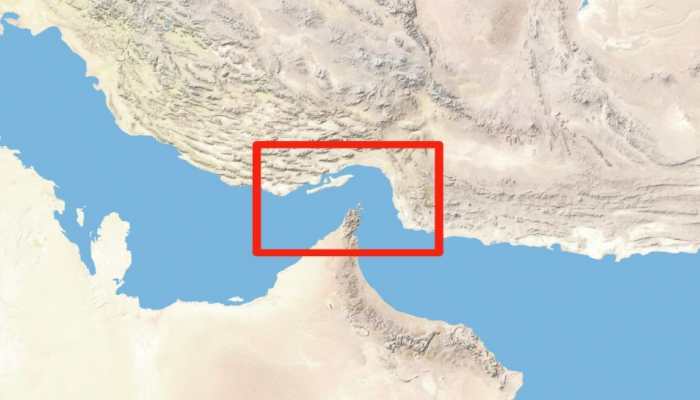Strait of Hormuz Showdown? Why Iran’s Threat May Backfire On Itself, Drag India And China Into Energy Turmoil
Former Pentagon official Michael Rubin called Iran’s threat “suicidal”, pointing out that Tehran depends heavily on imports for its own fuel consumption, including gasoline.
Trending Photos
) Strait of Hormuz
Strait of Hormuz New Delhi: Iran’s latest warning to shut down the Strait of Hormuz – a maritime chokepoint for global oil trade – has set off alarms far beyond the Middle East. The threat comes on the heels of intensified strikes on Iranian nuclear facilities by the United States and Israel. But experts now suggest that Tehran’s warning might do more harm to itself than its adversaries.
Former Pentagon official Michael Rubin called Iran’s threat “suicidal”, pointing out that Tehran depends heavily on imports for its own fuel consumption, including gasoline. Shutting down Hormuz, he says, would choke off the very supply lines Iran needs to keep its economy afloat.
Each day, nearly 20 million barrels of oil pass through the Strait of Hormuz. It is not only Western nations that rely on it – Asia consumes 44% of that flow, and the bulk of that goes to China and India. For both these countries, any disruption in Hormuz would rattle energy security, stifle industrial output and spark market volatility.
A Silent Force, But a Heavy Stakeholder
China remains Iran’s top trading partner and the largest buyer of its oil. But while Beijing has stayed silent publicly, analysts believe it is likely working behind the scenes. China has massive investments in Iran’s infrastructure, including the new Xi’an-to-Tehran railway line. These supply chains are key to the success of its Belt and Road Initiative.
A complete blockade of Hormuz could threaten China’s long-term energy strategy. It would disrupt oil imports and create bottlenecks in the critical logistics chain. For Beijing, a region on fire is not conducive to business.
India, too, walks a similar tightrope. Though it now sources more oil from Gulf nations like Iraq and Saudi Arabia, any regional flare-up impacts shipping costs, insurance premiums and refinery margins – raising costs for consumers back home.
High Risk, Limited Reward
Military experts argue that closing the Strait is not as simple as it sounds. Iran’s navy can harass ships or lay mines, but maintaining a long-term blockade risks a wider confrontation.
Moreover, limited alternate routes like the Saudi-UAE pipeline bypass can offer only partial relief to global markets.
What is more telling is that even Iran’s allies stand to lose. Tehran may be trying to signal strength, but the pressure from economic partners like China and India could force it to dial back. Publicly, those countries may avoid direct criticism; but privately, they wield considerable influence.
Political Message Wrapped in Military Posturing
Rubin believes this is less about real naval action and more about projecting power. With sanctions biting and public dissent rising, Iran’s leadership may be posturing for internal and regional audiences. But that is a dangerous game when your largest customers are watching and relying on uninterrupted fuel supply.
As the world watches the waters off Iran’s coast, a single misstep could ignite a global energy crisis. The challenge for Tehran is that the very countries it trades with are the ones most likely to push back – quietly, but decisively – if it crosses the line.
The next few days may determine whether this remains a war of words or spirals into an economic freefall no one wants.
Stay informed on all the latest news, real-time breaking news updates, and follow all the important headlines in india news and world News on Zee News.
Live Tv



)
)
)
)
)
)
)
)
)
)
)
)
)
)
